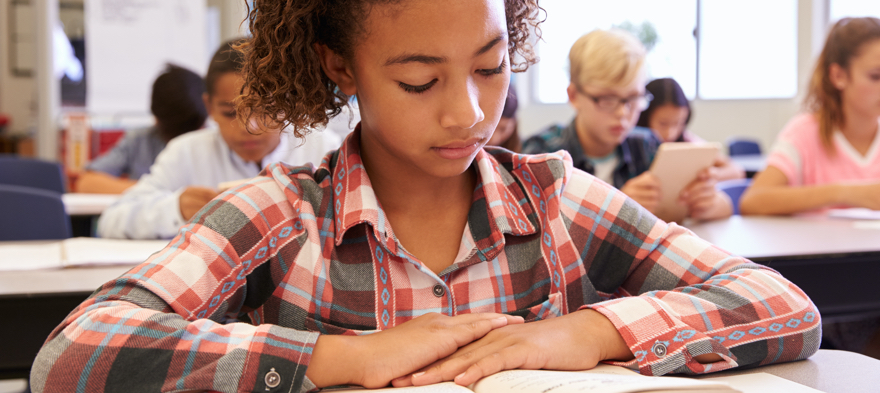
Sep 23, 2020 12:00:00 AM
In class a few days ago, we started reading the book “Rules.” The book is about a girl about my age who has a brother with autism. This book is supposed to shed light on the “issue” of autism. But I had a LOT of issues with the book.
First off, [pullquote position="right"]autism is NOT an issue, and disabilities are not a bad thing.[/pullquote]
In class, we had a discussion that made it sound like autism is horrible and all autistic people act like the young boy in this story. I'd like to think that if it weren’t for my hand constantly shooting up every time I heard an incorrect remark, kids in my class might think this is true.
Just like every snowflake is different, every person with autism has a different quirk. Yes, a quirk, not something they have to do since they cannot control themselves or their bodies.
Everyone has a quirk. My quirk is, I’m always twirling something: hoodie strings, blankets, my mom’s laptop charger. My mom gets LIVID when I do that. However, no one has ever told me, “Ryann, stop twirling your hoodie strings in public—it’s embarrassing!” No one has said, “Ryann, think about if the way you twirl your hoodie strings makes people uncomfortable, so before you ever move your hands, think about what you're doing and how it would make everyone around you feel.”
But the person I know with autism would know too well that everyone is always telling her to think before you say anything, do anything or move anything.
Also, disability is different for each person. [pullquote]You can’t project what you know about one person with a disability on all people with disabilities.[/pullquote]
Don’t generalize about disabilities to the point where you think every single person's quirk or their experience with a disability is the same.
I think it’s very important to note that having a disability is not a bad thing. Also, why do we use the word “disability?” That word sounds like some crazy killer infectious disease when really, it just shows one way we’re all different.
My mom made a great point that really helped me understand disabilities. She said, “Before glasses were invented, everyone who couldn’t see without them would be labeled as disabled.” Now, having glasses is normal. You wouldn’t give a second glance at someone wearing glasses. So why is it that today, people being different and having a disability is still considered a bad thing?
Imagine a world when we are all the same. My teachers say everyone would look like you and like the same sport, but I can think of way worse things. Imagine only having one order on the entire McDonald’s menu!
Since everyone would like the same things, there would be no need for different meals. Or, think about getting lost in a store. It’s hard enough to find your parents when everyone looks different—imagine trying to find your parents when everyone looks exactly the same! Differences make our world go round, and without them we would live in a boring place with a boring McDonald’s menu.
Disabilities are not bad—and having a disability is not someone’s only personality trait. I know a person who is autistic and she’s the funniest person I know. Everyone is special in their own way, everyone has a quirk. And as soon as we all accept that—[pullquote]as soon as we normalize disabilities—the world will be a much better place.[/pullquote]
Ryann Michelle Dawson lives in the Western suburbs of Chicago, Illinois. Ryann is an avid reader, enjoys writing for her local newspaper, and loves trying out various types of food! Ryann enjoys writing about politics, international policies, human rights, and social justice. Ryann attends Fenwick High School.
Few issues in education spark more tension and debate than standardized testing. Are they a tool for equity or a burden on students? A necessary check on school systems or a flawed measure of...
Charter schools are public schools with a purpose. Operating independently from traditional school districts, they're tuition-free, open to all students, and publicly funded—but with more flexibility...
Despite the benefits of a diverse teaching force, prospective teachers of color fall out of our leaky preparation pipeline at every stage: preparation, hiring, induction, and retention. Here’s what...
Ed Post is the flagship website platform of brightbeam, a 501(c3) network of education activists and influencers demanding a better education and a brighter future for every child.
© 2020-2025 brightbeam. All rights reserved.
Leave a Comment